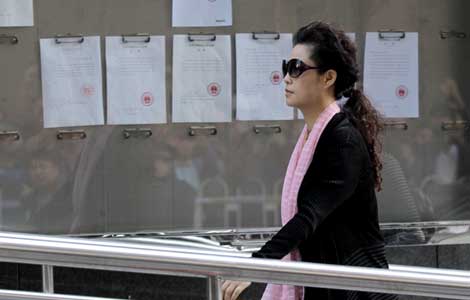US Senate panel drafting bill to limit NSA spying
Updated: 2013-09-27 16:35
(Xinhua)
|
||||||||
WASHINGTON - The US Senate Intelligence Committee leaders said on Thursday they began drafting legislation to increase transparency and tighten oversight to National Security Agency's surveillance programs that have been under fierce scrutiny over the past three months.
The Senate Intelligence Committee held its first public hearing on Thursday since leaks made by defense contractor Edward Snowden in June about the government's secret phone and Internet surveillance.
Dianne Feistein, the panel's chairwoman, outlined some measures of the legislation to "increase public transparency" and strengthen congressional and special court oversight to the secret surveillance programs.
For the phone surveillance program's part, she said the proposed measures will include placing limits on NSA's phone metadata program "to change but preserve this program," limiting access to the phone metadata records, reducing the length of time that records can be held and queried, as well as requiring annual reports.
As for the Internet surveillance program, she said measures will include requiring any query using a US person's name or email address can be done only for articulable foreign intelligence purposes and a record explaining the purposes to be provided to the special court and to Congress.
Feinstein said the Intelligence Committee will continue to review all of the intelligence programs for the rest of the fall.
The nation's top intelligence official and the head of NSA testified at Thursday's hearing, saying they are open to the idea of some reform to the government surveillance programs.
James Clapper, the Director of National Intelligence, said he would consider measures including limiting NSA analysts' access to the phone database, limiting how long such data can be kept and having an independent representative on the special court that are responsible to review surveillance requests to argue against the government.
Several Democratic and Republican Senators introduced their own idea of legislation to strengthen oversight of the secret surveillance over Americans.
Senator Ron Wyden, one of the sponsors of the legislation and the critics of the government's surveillance, said, "The disclosures over the last hundred days have caused a sea change in the way the public views the surveillance system."
"The bulk e-mail and phone records programs have not provided unique value beyond what can be obtained from existing intelligence collection authorities," he said.
Their proposals will outlaw the bulk collection of Americans' phone and email records, close backdoor search loophole and overhaul the special court authority by installing a constitutional advocate to argue against the government's position.

 Serena Williams back to Beijing for new crown
Serena Williams back to Beijing for new crown
 'Battle of the sexes' to start China Open
'Battle of the sexes' to start China Open
 Making a wobbly stand on violence against women
Making a wobbly stand on violence against women
 US astronaut praises China's space program
US astronaut praises China's space program
 Christie's holds inaugural auction
Christie's holds inaugural auction
 Aviation gains from exchanges
Aviation gains from exchanges
 Early fish ancestor found
Early fish ancestor found
 Singers' son sentenced to 10 years for rape
Singers' son sentenced to 10 years for rape
Most Viewed
Editor's Picks

|

|

|

|

|

|
Today's Top News
US Senate panel drafting bill to limit NSA spying
Popularity of Brazilian president rebounds: poll
UN to draft resolution on Syria's chemical weapons
China urges package deal on Iran's nuke issue
US arms sales to Taiwan still sticking point
Can the 'Asian pivot' be saved?
Trending news across China
US firms pin hopes on financial liberalization
US Weekly

|

|








